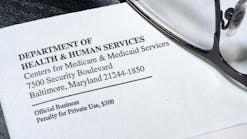The Healthcare Supply Chain Association (HSCA) recently provided comments to the U.S. Trade Representative Ambassador Lighthizer urging him to continue to exclude medical products from the tariffs on Chinese exports in order to safeguard public health and ensure uninterrupted patient care.
In HSCA’s comments, HSCA President and CEO Khatereh Calleja states, in part:
“American healthcare providers rely on suppliers in China for a broad range of important products, including essential healthcare supplies. Tariffs on medical products or component products from China would exacerbate challenging budgetary conditions and could jeopardize patient access to affordable care.”
Khatereh Calleja, JD, President & CEO, Healthcare Supply Chain Association (HSCA) sent the following letter to U.S. Trade Representative Ambassador Lighthizer:
On behalf of the Healthcare Supply Chain Association (HSCA), we appreciate the opportunity to provide comments to the U.S. Trade Representative (USTR) on the proposed modification of action regarding Chinese exports under Section 301.
HSCA represents the nation's leading healthcare group purchasing organizations (GPOs), the sourcing and purchasing partners to virtually all of America's 7,000+ hospitals, as well as the vast majority of the 68,000+ long-term care facilities, surgery centers, clinics, and other healthcare providers. We help our healthcare provider partners leverage their purchasing volume to negotiate competitive prices on healthcare products and services. One report estimated that GPOs reduce supply-related purchasing costs by 13.1 percent and will reduce healthcare spending by up to $456.6 billion between 2017 and 2026. The value that GPOs deliver allows healthcare providers and physicians to focus on their core mission: providing first-class patient care.
HSCA and its member GPOs have a unique line of sight over the entire healthcare supply chain - from raw materials to the manufacturing process for drugs and medical devices to their delivery to patients. Even seemingly minor disruptions to the healthcare supply chain could have significant consequences for patients. We are concerned that tariffs on medical goods could adversely impact public health and emergency preparedness, and could lead to interrupted supply and increased healthcare costs for all stakeholders. As USTR considers modifications to the Section 301 list, HSCA respectfully urges USTR to continue to exclude medical products in order to safeguard public health and ensure uninterrupted patient care.
American healthcare providers rely on suppliers in China for a broad range of important products, including essential healthcare supplies such as surgical gloves, medical devices and component products, pharmaceuticals and many others. Increasing the cost of these products, could result in higher costs for patients, jeopardizing patient access to affordable healthcare. A recent report from the American Hospital Association (AHA), Federation of American Hospitals (FAH), and American Society of Health-System Pharmacists (ASHP) found that, in addition to disrupting patient care, price spikes and drug shortages are already putting a strain on hospital budgets and operations. Tariffs on medical products or component products from China would exacerbate these challenging budgetary conditions.
Additionally, while we are appreciative that the Administration has thus far exempted Active Pharmaceutical Ingredients (API) from the tariffs, we do want to highlight the importance of continuing to exempt APIs in any future product lists. Americans rely on generic drugs to reduce costs and increase access to necessary medication, and price spikes for commonly used drugs jeopardize patient access to care. As the Association for Accessible Medicines (AAM) notes in their comments, tariffs on pharmaceutical products would disproportionately impact generic drug manufacturers – for whom manufacturing makes up a greater portion of costs – resulting in diminishing competition and higher drug prices for generic drugs.
American healthcare providers rely on a predictable and continuous supply of drugs, devices and other supplies to effectively treat patients. As USTR considers additional modifications to the list of products that are subject to tariffs under Section 301, we respectfully urge USTR to ensure that healthcare providers and the patients they serve continue to have access to an uninterrupted supply of critical healthcare products and services.





